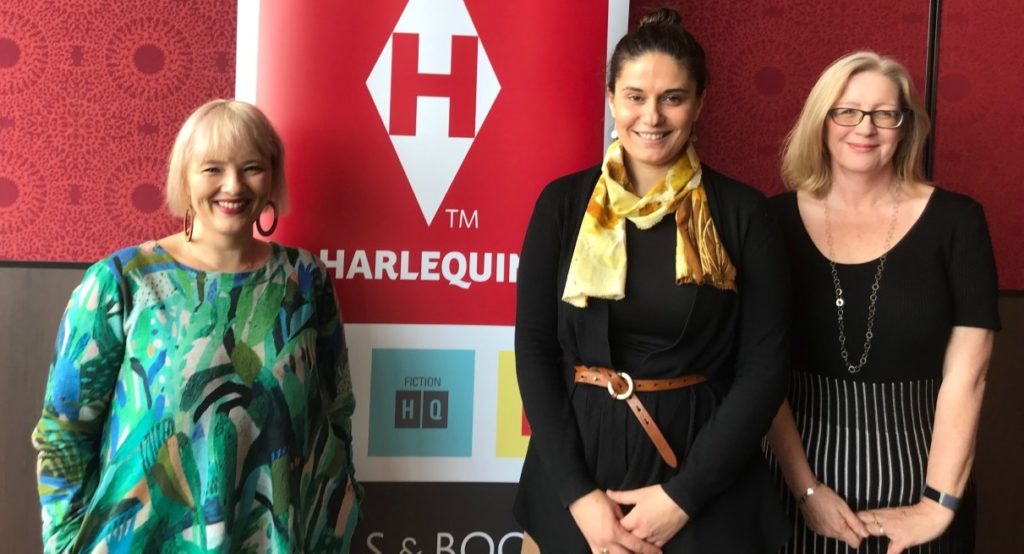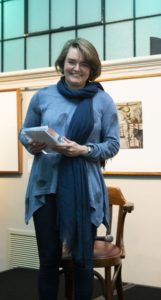
First Nations fiction fellow announced, praise for unorthodox biography, more accolades for digital design, and Empire Times endures in style.
More top accolades for Flinders/CDW

Bachelor of Creative Arts (Honours, Digital Media) student Penny Parker has earned a spot in Adobe’s first-ever global class of Top Talent in the 2019 Adobe Design Achievement Awards.
Ms Parker’s stunning horse characters and illustration of their creative development can be viewed here. The entry is an animated film concept the Flinders Visual Effects and Entertainment Design graduate developed for a Russian folk tale – The Apples of Youth and the Water of Life.
This latest achievement continues to demonstrate the strengths of the Flinders University/CDW Studios digital design partnership and its burgeoning international reputation.
As a member of Adobe’s Top Talent for 2019, Ms Parker wins recognition of her skills on the global stage, establishing her kudos as a digital illustrator of international standard and communicating her expertise to peers and potential employers around the world. She also receives a one-year Creative Cloud subscription, a certificate, badge and feature on Adobe’s awards website.
The Adobe Awards were established this year by the world leader in digital illustration and design software, aiming to be the premier media competition for students and emerging digital creatives.
Creatives can submit their entries on the global stage, in a similar format to the renowned ‘Rookies Awards’, which has showcased many Flinders University/CDW students as global experts in digital design – and named the partnership number one in the world for digital illustration for the past two years running.
Inaugural First Nations fiction fellow

The inaugural Commercial Fiction Fellowship for First Nations Writers – an initiative forged by Senior Lecturer in English and Creative Writing Dr Amy Matthews and Australian publisher Harlequin – has been won by Melbourne-based author Angie Martin for her manuscript Melaleuca.
Angie Martin of the Kooma nation, who also has Kamilaroi, Welsh, German and English ancestry, was thrilled to receive the fellowship. “I am very happy to be supported in pursuing my three great passions in life: reading, writing and sharing my Aboriginal culture,” she said. “I am grateful to both my grandmothers for instilling in me an appreciation for storytelling.”
The idea for the fellowship was built on a desire to encourage more styles of First Nations writing into the commercial marketplace, and especially into the most powerful publishing sector of Popular Commercial Fiction.
The fellowship offers a First Nations writer a 12-month mentorship; associate status at Flinders University; a writing residency at Writers SA; and a stipend of $3500. While at Flinders, the fellow will be able to access libraries, resources and support from Dr Matthews.
The judges stated that Melaleuca will appeal to readers of character-driven crime fiction. Central character Josh Cunningham questions what he knows of his father and himself after his mother’s death. Josh returns to the rural town he grew up in to unravel a family secret. Together, they investigate unsolved disappearances of young Aboriginal women.
Publisher Jo Mackay applauded Melaleuca as a manuscript of dark mystery and a “unique sense of place that at the same time could be nowhere but Australia. It slowly builds up the suspense until the tension becomes hard to tolerate”.
National focus on literature links

Dr Danielle Clode’s recent success as a shortlisted finalist for the National Biography Award has shone a light on innovation in the field of biography writing.
In recognising her book The Wasp and the Orchid – profiling Australian naturalist Edith Coleman, whose contribution to science in the 1920s has been largely overlooked – the judges were fulsome in their praise of Dr Clode’s writing.
“This book is both biography and memoir; a masterpiece of archival detection, intricate orchestration, and vivid recreation. Edith’s homes and gardens in coastal and bush habitats are brought to life with vivid, elegant prose and acute insight,” the judges commented.
“I’m happy to be recognised in a highly prestigious field – particularly because it’s really an award for how the book was written,” says Dr Clode.
“Author and academic Carolyn Baum pointed out that I’d ‘broken all the rules of biography’. Luckily I didn’t know there were rules.”
Such an outcome underlines the importance of The Flinders Life Narrative Research Group, within the College of Humanities, Arts and Social Sciences, of which Dr Clode is a member.
By critically assessing the disciplines of creative writing, life writing, and literary pedagogies at regular seminar series and national and international conferences, the research group highlights fresh possibilities in literature and serves to inspire its writer members.
“Being a part of the Flinders Life Narrative Research Group gave me access to experts at the cutting edge of life-writing research and practice internationally, and their advice and support gave me the confidence to take a more innovative approach to biography,” says Dr Clode.
“We’re lucky to have such a leading centre for life-writing research at Flinders, at a time when this genre is expanding rapidly.”
Taking out a half-century
Empire Times, the enduring student publication at Flinders University, celebrated 50 years since its initial publication with a celebratory party at the Tavern on August 15.
Appropriately, this year’s 5th edition of the publication was launched at the event, focused around the theme of ‘history’.
Empire Times’ original editor and founder Martin Fabinyi – now a respected Australian film and television producer and director based in Sydney – was special guest at the event, along with many other past editors, supporters and current staff.

